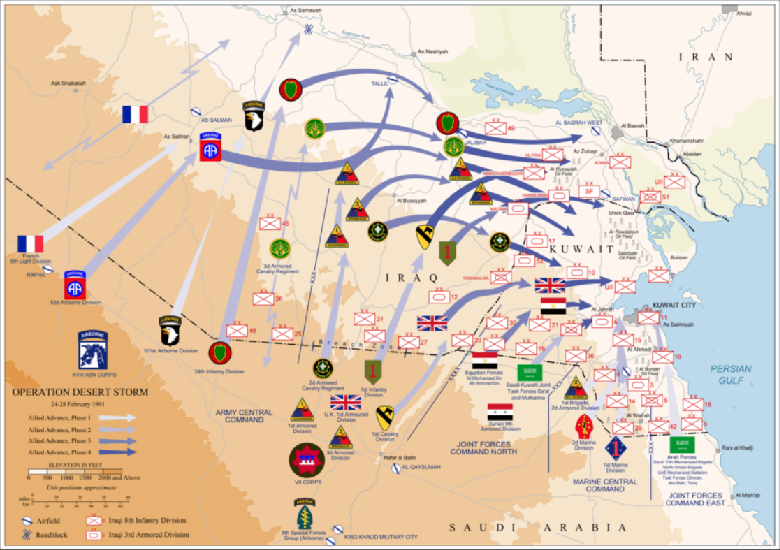
In 1991 I had a doctor friend in a hospital in London who was put in charge of a special medical team which was trained to treat British soldiers in Iraq and the Gulf who became victims of an Iraqi poison gas attack. Wards were cleared of all but emergency cases in her hospital to make room for these potential casualties, but they never arrived because, if Saddam Hussein retained any poison gas, he never used it.
The only casualties my friend’s unit ever treated were from a medical team from Bulgaria or Romania – so far as I recall – who had been stationed far from the frontline in Saudi Arabia where they built themselves a still to make alcohol. But something went wrong with the construction and they produced a lethal brew likely to produce death and blindness if they had not been flown to my friend’s hospital in London.
In the years after the war, many American and British soldiers taking part in the invasion of Iraq complained of unexplained and crippling illnesses such as excruciating muscle pain, fever and memory loss. Governments and armies denied that anything peculiar had happened.
I was told by one source that special tablets that supposedly counter-acted poison gas had been given to the troops, though these were of recent invention and largely untested. US soldiers discovered that if you took enough of them, they would give you a “high” so they overdosed themselves with toxic consequences.
I never found enough evidence to prove this theory or make it more than a hypothesis. But now American scientists say that they have discovered what caused the mysterious symptoms in a study of 1,000 Gulf War veterans. This revealed that they were suffering from the nerve agent sarin which was released into the atmosphere when the US bombed Iraqi caches of the gas. It was dispersed enough for it not to be fatal, but even in its dilute form it was sufficient to make people ill if they were genetically vulnerable.
Dr Robert Haley of the University of Texas Southwestern Medical Center, the lead researcher in a team funded by the Pentagon, says that the key to vulnerability to sarin is whether or not a victim has a gene known as PON1. Those with a less effective version of the gene are most likely to fall ill. Some 33,000 British veterans could have the symptoms and 1,300 are claiming a war pension because of illnesses caused by it.
“Quite simply, our findings prove that Gulf War illness was caused by sarin, which was released when we bombed Iraqi chemical weapons storage and production facilities,” Dr Haley, who is a medical epidemiologist and who has been investigating Gulf War Syndrome for 28 years is quoted as saying.
“There are still more than 100,000 Gulf War veterans who are not getting help for this illness and our hope is that these findings will accelerate the search for better treatment.”
This may be the explanation for the mystery illness, but many of those who suffer from it were far from Iraq and I have not seen reports of large stocks of sarin being hit by missiles or bombs.
Patrick Cockburn is the author of War in the Age of Trump (Verso).
Article published in Counter Punch.